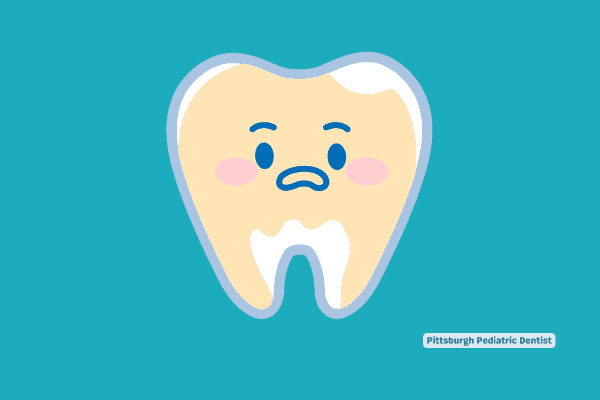Does Coconut Oil Whiten Teeth? A Dentist’s Analysis on Oil Pulling for Teeth Whitening
Coconut oil has been a buzzword in the wellness community for its myriad of uses, from cooking to skincare, but can it also be a secret weapon for teeth whitening? The concept of using coconut oil for teeth whitening is rooted in a traditional method known as oil pulling, a practice that involves swishing oil around your mouth to purportedly remove plaque, improve oral health, and yes, whiten teeth.
But does coconut oil really live up to the hype, or is it just another wellness fad with no scientific backing? In this article, we will delve deep into the practice of oil pulling with coconut oil, exploring its origins, its effectiveness, and whether dentists recommend it as a teeth-whitening remedy. Whether you’re a skeptic or a long-time user of coconut oil for oral care, this dentist’s analysis aims to provide a comprehensive overview of what you can really expect from incorporating coconut oil into your dental care routine.
Also Read: Baking Soda for Whitening Teeth: A Comprehensive Guide
What is Coconut Oil Pulling?
Oil pulling is an ancient Ayurvedic practice that involves swishing a tablespoon of edible oil, usually coconut, sesame, or sunflower, in the mouth for 15 to 20 minutes. This method is believed to draw out toxins from the body, improving oral and overall health. Scientific studies suggest that oil pulling can reduce plaque, combat gingivitis, and decrease microorganisms that can lead to bad breath.
Benefits
- Reduction in plaque and tartar build-up
- Prevention of gingivitis
- Reduction in harmful bacteria in the mouth
- Improvement in bad breath (halitosis)
- Potential whitening of teeth
From my experience as a dentist, I’ve observed that patients who practice oil pulling, particularly with coconut oil, often present with healthier gums and fresher breath. We often recommend incorporating oil pulling as a supplementary practice to regular dental care routines for those interested in natural oral health remedies. However, it’s crucial to note that oil pulling should not replace regular brushing, flossing, and dental check-ups.

Does Coconut Oil Whiten Teeth?
Indeed, there is a common belief that coconut oil can whiten teeth. This notion primarily stems from the practice of oil pulling, where the oil’s natural properties are said to pull stains from the teeth, leading to a brighter smile.
The practice of using coconut oil for oral health has its roots in Ayurvedic medicine, dating back thousands of years. It was believed to detoxify the body and improve oral health. Modern science has explored these claims, and while definitive evidence regarding the whitening effect is still inconclusive, studies have shown that coconut oil pulling can have several benefits for oral health. It is found to be effective in reducing plaque formation and plaque-induced gingivitis. The lauric acid in coconut oil is known for its antimicrobial effects, which can help in reducing bacteria in the mouth, potentially leading to whiter teeth over time.
While the whitening effects of coconut oil are still under debate, its benefits for gums and teeth are notable. Coconut oil pulling can lead to a reduction in the bacteria responsible for plaque and decay, promoting healthier gums and preventing bad breath. It’s a beneficial supplementary practice for maintaining oral hygiene, but it should complement, not replace, regular dental care routines like brushing and flossing.
How Does Coconut Oil Whiten Teeth? Step-Wise Guide
Here’s a step-by-step guide on how to perform oil pulling with coconut oil, which is believed to have teeth-whitening properties:
Step 1: Choose High-Quality Coconut Oil
Opt for organic, virgin, and unrefined coconut oil. It retains the most beneficial properties compared to refined versions.

Step 2: Measure the Oil
Measure one tablespoon of coconut oil. This amount is sufficient for oil pulling and is comfortable enough to swish around the mouth.
Step 3: Start Swishing
Place the coconut oil in your mouth. If it’s solid, allow it to melt and then start swishing. Swish the oil around your mouth, pulling it through your teeth, for 15-20 minutes. Ensure it reaches all parts of your mouth.
Step 4: Don’t Swallow
Avoid swallowing the oil as it collects bacteria and toxins from your mouth.
Step 5: Spit it Out
After swishing for the recommended time, spit the oil into a trash can. Avoid spitting it into the sink or toilet as it can lead to blockages once it solidifies.
Step 6: Rinse Well
Rinse your mouth thoroughly with warm water and brush your teeth as normal. You can use a saltwater rinse for additional antimicrobial effects.
Step 7: Regular Practice
For optimal results, practice oil pulling on an empty stomach at least three to four times a week.
Note
While oil pulling with coconut oil can be a beneficial addition to your oral hygiene routine due to its antimicrobial properties, it’s important to note that it doesn’t replace regular brushing, flossing, and dental check-ups. The American Dental Association has not endorsed oil pulling as a teeth whitening method, and more research is needed to substantiate the teeth-whitening claims.
However, many people find it a helpful supplementary practice for maintaining oral health. We recommend you to opt for professional teeth whitening service from your trusted dentist, if you want 100% accurate results.
Oral Health Benefits of Coconut Oil
Transitioning from discussing the method of oil pulling, it’s essential to explore the extensive oral health benefits provided by coconut oil. This natural remedy is celebrated for its multifaceted uses in dental care, offering a holistic approach to sustaining oral well-being.
Antimicrobial Properties
Coconut oil is rich in lauric acid, which is known for its antimicrobial properties. It can help in combating harmful bacteria, fungi, and viruses present in the mouth, reducing the risk of infections, gum diseases, and tooth decay.
Reduces Plaque and Gingivitis
Regular use of coconut oil, especially through oil pulling, can significantly reduce plaque formation and the occurrence of gingivitis, thanks to its anti-inflammatory and plaque-reducing properties.
Freshens Breath
The antimicrobial properties of coconut oil also play a role in reducing bad breath by eliminating the bacteria that cause halitosis, leaving the mouth feeling fresh and clean.
Moisturizes and Soothes Gums
Coconut oil provides moisture to the gums, preventing dryness and irritation. It can be particularly beneficial for those who experience sensitivity or discomfort in the gums.
Natural Whitener
While scientific backing is limited, many attest to the natural whitening properties of coconut oil. Regular oil pulling is believed to remove stains and promote a brighter smile.
Choosing the Right Coconut Oil
For optimal benefits, it’s crucial to choose organic, virgin, unrefined coconut oil. This form of coconut oil retains the maximum amount of beneficial properties, ensuring that you reap the full spectrum of its oral health benefits. Avoid using refined or processed coconut oil as it lacks the essential nutrients and may contain harmful additives.
Wrapping up the discussion
In conclusion, the practice of oil pulling, particularly with coconut oil, has been a topic of much discussion and intrigue in the realms of dental care and oral health. While the scientific evidence to definitively prove the teeth-whitening capabilities of coconut oil may be limited, the benefits of oil pulling extend beyond just making teeth appear whiter. It’s a method steeped in tradition, known for reducing plaque, combating bad breath, and promoting overall gum health.
It’s crucial to approach coconut oil pulling as a supplementary oral hygiene practice, rather than a substitute for regular dental care routines involving toothbrushes, fluoride toothpaste, and dental floss. Regular consultations with a dentist and adherence to recommended oral care practices are paramount in maintaining optimal dental health and preventing conditions like gingivitis and tooth decay.
Remember, the journey to achieving a healthy smile involves a combination of consistent oral hygiene practices, balanced nutrition, and regular dental check-ups. Whether or not you choose to incorporate coconut oil pulling into your oral care routine, staying informed and proactive is the key to preserving your smile’s brilliance and your oral health’s resilience.

